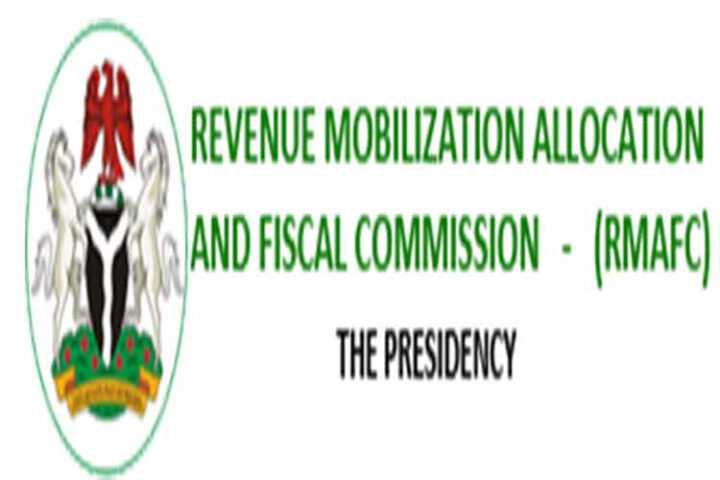The Federal Government has announced the commencement of a comprehensive review of the country’s revenue allocation formula, a process aimed at addressing long-standing concerns over fiscal imbalance and improving equitable distribution of resources across the three tiers of government.
The exercise, according to officials, is expected to take into account current economic realities, the revenue needs of states and local governments, and the federal government’s obligations, with the goal of creating a more sustainable fiscal framework for national development.

The review comes amid repeated calls by state governors, local government authorities, and civil society organisations for a more just and transparent sharing formula. Under the existing arrangement, which has been in place for more than two decades, the federal government receives 52.68 percent of the Federation Account, states get 26.72 percent, while local governments take 20.60 percent. Critics have argued that the formula no longer reflects contemporary expenditure responsibilities and must be urgently revised.
Chairman of the Revenue Mobilisation Allocation and Fiscal Commission (RMAFC), Mohammed Bello Shehu, confirmed the development, stating that the commission had initiated wide consultations with stakeholders across the country. “We are working closely with all levels of government, civil society, the private sector, and relevant institutions to ensure that this review reflects the needs and aspirations of Nigerians. Our objective is to build consensus around a new allocation formula that supports growth, equity, and stability,” Shehu explained.
He further noted that the commission has already begun receiving memoranda and proposals from stakeholders, which will form part of the final recommendations to be presented to President Bola Ahmed Tinubu for approval before being forwarded to the National Assembly.
The review process is expected to weigh critical issues such as the growing revenue demands of subnational governments, rising debt service obligations of the federal government, the need to strengthen local governance, and the broader objective of reducing poverty.
Observers have pointed out that state governments have consistently complained of inadequate allocations, especially given the growing burden of salaries, infrastructure development, healthcare, and education. The Nigerian Governors’ Forum (NGF) has long maintained that the current formula disproportionately favours the federal government while leaving states and local governments underfunded.
Speaking on the development, a senior official of the NGF, who preferred not to be named, described the review as a step in the right direction. “For years, governors have called for a more realistic revenue allocation formula that matches expenditure responsibilities. The bulk of governance responsibilities fall on states and local governments, yet the current formula gives them less than half of the national revenue. This imbalance must be corrected if Nigeria is to achieve meaningful development,” he said.
Civil society groups have also weighed in, urging transparency and inclusivity in the review process. The Civil Society Legislative Advocacy Centre (CISLAC) commended the initiative but cautioned that the review should not be politicised. “The revenue allocation formula affects every Nigerian, as it determines how much resources are available for healthcare, education, and infrastructure. The process must therefore be transparent, data-driven, and participatory,” CISLAC stated in a release.
Economic experts have argued that revising the formula could also improve fiscal accountability at the subnational level. With increased allocations, states and local governments would have greater resources to drive grassroots development. However, they also cautioned that stronger accountability mechanisms must be put in place to ensure that additional funds are used prudently.
Professor Uche Uwaleke, an economist and former finance commissioner, noted that fiscal discipline remains a major challenge. “While I support a review of the allocation formula, we must simultaneously strengthen public financial management systems. Otherwise, higher allocations may not translate into improved welfare for citizens,” he warned.
The federal government, on its part, has expressed its willingness to cooperate with stakeholders to ensure fairness. Officials at the Ministry of Finance emphasised that while the federal government currently retains a larger share, it also bears significant responsibilities, including national security, debt servicing, foreign affairs, and large-scale infrastructure.
They noted that any revision must strike a balance between addressing subnational needs and ensuring that the federal government remains capable of discharging its critical functions. “This is not about reducing the capacity of the centre but about aligning national revenue distribution with current realities,” an official said.
The review of the allocation formula also intersects with broader fiscal reforms being championed by the Tinubu administration, including tax reforms, subsidy removal, and efforts to boost non-oil revenue. Analysts believe that a new formula, if properly designed, could enhance fiscal federalism, reduce over-dependence on the federal purse, and foster healthy competition among states.
In addition, the review process is expected to consider new revenue sources such as the solid minerals sector, blue economy, and digital taxation, which could expand the size of the distributable revenue pool. The RMAFC has indicated that it will factor in the diversification agenda of the federal government as part of its recommendations.
As consultations continue, Nigerians are closely watching how the review will reshape the fiscal landscape. Stakeholders say the outcome must be fair, sustainable, and development-focused to win public trust.
Ultimately, the review of the revenue allocation formula represents more than just a technical adjustment of numbers—it is about rethinking Nigeria’s fiscal federalism in a way that ensures equity, efficiency, and accountability. The decisions taken in this process will have far-reaching implications for governance, service delivery, and national cohesion in the years ahead.
Support InfoStride News' Credible Journalism: Only credible journalism can guarantee a fair, accountable and transparent society, including democracy and government. It involves a lot of efforts and money. We need your support. Click here to Donate
